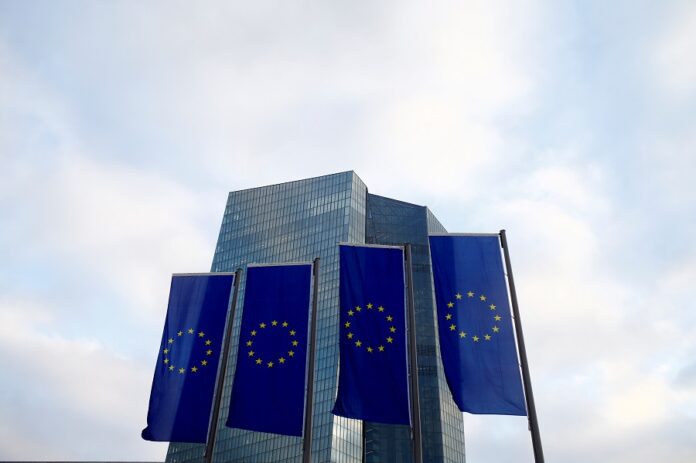The European Union‘s statistics office Eurostat said on Friday that its initial estimate of gross domestic product in the 19 countries was the growth of 2.0% quarter-on-quarter and 13.7% year-on-year, according to Reuters.
The Eurozone pulled more strongly than expected out of the recession caused by the COVID-19 pandemic in the second quarter as coronavirus curbs eased, while inflation shoot past the European Central Bank‘s 2% target.
Economists polled by Reuters had expected a 1.5% quarterly and a 13.2% annual increase.
Among the outperformers were the Eurozone’s third and fourth-largest economies, Italy and Spain, with quarterly growth respectively of 2.7% and 2.8%. Portugal’s tourist-heavy economy expanded by 4.9%.
The Eurozone has suffered two technical recessions – defined as two-quarters of contraction – since the start of 2020, with coronavirus curbs hitting most recently in the period spanning the end of 2020 and the start of 2021.
The zone’s GDP was largely dragged down in the first three months of this year by weakness in Germany where a lockdown from November had curbed private consumption.
Europe’s largest economy returned to growth in the second quarter, but at 1.5% quarter-on-quarter, it was less strong a rebound than expectations.
The French economy, the euro zone’s second-largest economy, grew by 0.9%, just ahead of forecasts, with a third lockdown gradually being eased from May.
However, many Eurozone countries are facing new waves of infections with the more transmissible Delta variant.
Figures on Thursday showed the U.S. economy grew at a slower than expected 6.5% annualised rate in the second quarter, pulling GDP above its pre-pandemic peak, as massive government aid and vaccinations fuelled spending on goods and services.
Eurostat also said Eurozone inflation accelerated to 2.2% in July, the highest rate since October 2018, from 1.9% in June and above the mean expectation of economists of 2.0%.
Energy prices were again the driving factor, rising 14.1% year-on-year.
Without the volatile energy and unprocessed food components, or what the European Central Bank calls core inflation, prices rose 0.9% year-on-year, the same as in June. Economists had expected a dip to 0.7%.
The figures are still unlikely to worry ECB policymakers, who have already warned of a temporary spike in inflation and made clear they would not adjust policy as the one-off factors behind the rise, such as higher oil prices, are likely to fade next year.
Eurostat also said that Eurozone unemployment fell in June to 7.7% of the workforce, or to 12.517 million people, from an upwardly revised 8.0% in May, or 12.940 million people. Economists had expected a jobless rate of 7.9%.


